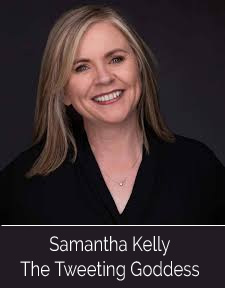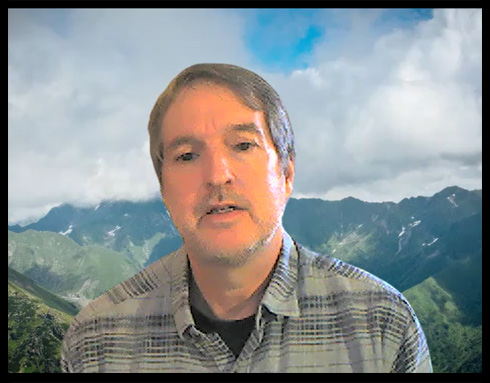Thought Leadership Studio Podcast Episodes:
Unveiling the Essence of Strategic Thought Leadership with Chris McNeil
Episode 69 - Decoding the Dynamics of Influence: Chris McNeil's Journey from Fitness Training Studios to Thought Leadership Strategist and Coach

#coaching, #consulting, #interviews, #johnseddon, #marketing, #marketingstrategy, #marketresearch, #marketresearch, #persuasion, #storytelling, #strategicthoughtleadership, #systemsthinking, #thoughtleadership, #thoughtleadershipmarketing, #workshop
Or Click here to listen or subscribe on appWhat this episode will do for you
:- Chris McNeil's Evolution into Thought Leadership: Uncover Chris's journey from pioneering in the fitness industry to becoming a beacon in strategic thought leadership, highlighting his innovative approach to marketing and business growth.
- Strategic Thought Leadership Explained: Dive deep into the core principles of strategic thought leadership as Chris McNeil articulates its significance in shaping market perception and fostering groundbreaking ideas.
- The THAUT Process Unveiled: Gain insights into the THAUT model, a unique framework developed by Chris that stands for Triadic Holistic Architecture Underlying Thought Leadership, offering a structured approach to impactful communication.
- Empowering Through Coaching: Discover how Chris's coaching methodology transforms business leaders by equipping them with the tools to lead their audience towards enhanced understanding and engagement.
- The Intersection of Technology and Marketing: Explore Chris's perspective on leveraging technology, including AI and digital platforms, to amplify thought leadership and create meaningful connections with audiences.
- Real-World Success Stories: Listen to compelling case studies of businesses that achieved exponential growth by implementing strategic thought leadership principles under Chris's guidance.
- Fostering Innovation in Thought Leadership: Learn about the future of thought leadership and how Chris envisions its evolution in the rapidly changing landscape of business and technology.
Chris McNeil (your host) on Strategic Thought Leadership.
In this excerpt from the her LinkedIn Audio series, Samantha Kelly interviews me (Chris McNeil) about Strategic Thought Leadership.
Samantha was such an excellent host that I thought she facilitated maybe one of the best introductions to date to the concept of "Strategic Thought Leadership", including with how it contrasts with how most people think about thought leadership.
I explain that thought leadership is not just about labeling oneself as an expert, but rather about shaping the thinking of an audience and leading them to a new way of looking at a field or profession. I emphasize the importance of listening to the audience and understanding their needs and values in order to create content that empowers them.
I also discusses the triple perspective approach of "LEO" (Listen, Envision, Output) and the significance of challenging assumptions and unraveling belief systems. I announce my upcoming book, "Strategic Thought Leadership," and invites listeners to check out this podcast, Thought Leadership Studio.
Some of Chris's coordinates:
Curated Transcript of Chris McNeil being Interviewed by Samantha Kelly about Strategic Thought Leadership
The following partial transcript is lightly edited for clarity - the full interview is on audio. Click here to listen.
 Samantha Kelly: Good afternoon and welcome to this LinkedIn audio series with myself, Samantha Kelly, and Chris McNeil, who is my special guest today.
Samantha Kelly: Good afternoon and welcome to this LinkedIn audio series with myself, Samantha Kelly, and Chris McNeil, who is my special guest today.
Thank you. I see we already have a listener who's just jumped in. Hello? Michael. Oh, V Michael. Oh, I dunno if it's Michael or V Michael. So thank you. Welcome. Thank you so much for joining us, and Richard has just joined us as well. Welcome guys.
Yeah, I'm here with Chris McNeil. There's my good friend Pierre Dubois as well. I love Pierre. Chris is the host of the Thought Leadership Podcast and he's also a consultant in Strategic thought Leadership. So let's find out more about strategic Thought Leadership.
So there might be some of us in the audience don't even know what that means. So you're going to help us, Chris today. So Chris, tell everyone a little bit about yourself.
Shaping Perspectives and Connections: Unveiling the Power of Strategic Thought Leadership
 Chris McNeil: Thanks for the introduction, Samantha. So I host the podcast Thought Leadership Studio and I started the podcast because I discovered a fascinating and powerful way of marketing that looks at thought leadership, not as something to label yourself or even just to demonstrate your expertise, but as a way to actually shape the thinking of an audience, to lead people to a new way of looking at whatever your field or your profession or your type of business is.
Chris McNeil: Thanks for the introduction, Samantha. So I host the podcast Thought Leadership Studio and I started the podcast because I discovered a fascinating and powerful way of marketing that looks at thought leadership, not as something to label yourself or even just to demonstrate your expertise, but as a way to actually shape the thinking of an audience, to lead people to a new way of looking at whatever your field or your profession or your type of business is.
And I found it hard to explain because it's a little counterintuitive to people who are used to seeing marketing as a way to target prospects and to bring leads in ... where thought leadership is more about inbound type marketing, where you acknowledge that people spend six or seven hours a day on the internet and depending on what study you look at, 81 to 89% of people research online before making a major purchase.
So we have all these people online looking to learn about what we do, and that's a need we can serve and we can serve it as a higher level by creating the kind of content that empowers them rather than looking to target them.
 And when you empower them in a way that educates them to see what you do in a new light, that cast a favorable light on how you specifically do what you do or how your business does what it does, or how your client's business does what it does, it's a really effective way of marketing.
And when you empower them in a way that educates them to see what you do in a new light, that cast a favorable light on how you specifically do what you do or how your business does what it does, or how your client's business does what it does, it's a really effective way of marketing.
Samantha Kelly: Oh, I love this. I love this and it's so true. I just want to welcome tgs who's joined us and Mark and l Kate Bennett and John. Lovely to see you, John Fari and Ashish, if I butchered your name there, I do apologize. Please do let me know. And Stacy has joined us as well. Hi Stacy. Yeah, we love these LinkedIn audios because it's great to meet new people. There's some new people here that I don't know, so thank you so much. It's lovely to connect.
And folks, this is not just all about us, it's about you. So if you do see someone in the audience who looks interesting, you might want to connect, but please do connect. This is about connecting, building relationships and connecting with each other.
Exploring Strategic Thought Leadership's Relationship with a Visionary Approach to Service Design
So Chris, I know you do the podcast and what have been the most interesting things or one that stood out for you, someone you interviewed lately?
Chris McNeil: Oh wow, that's a hard question because there are so many fantastic guests that have been on there. And I did the podcast as I mentioned, as a way to give a more thorough explanation of what Strategic Thought Leadership actually is in the format that allows explaining that.
So as part of that, I started looking for models of excellence in various areas. And these models of excellence have been enlightening because they always educate me on something I didn't know before about a specific aspect that relates to leading the thinking of an audience online.
And one of my business heroes was on the podcast, a man named John Seddon, who is the inventor of the Vanguard Method leads the Vanguard Group Consulting. And they bring systems thinking to service businesses.
And I'm sure some of the listeners know the name Edward Deming, who revolutionized Japanese manufacturing as American who went to Japan and taught Toyota to build cars at the rate of demand and help make Toyota the powerhouse it is today.
Well, that was great for manufacturing, but what Seddon has done is he brought that kind of thinking to service businesses, looking at the whole system from the customer's point of view, designing it from the customer's point of view, which acknowledges the often unspoken truth that it's the customer that sets the value of our service. So only if you design it from the customer's point of view, can you flush out waste and maximize profit. But we don't always do that.
Big data has taught us to look at customers as data points, and the way data is usually analyzed is by expecting people to repeat what they've done in the past. That's not the way settings, people look at services and that's not the way I look at marketing. I asked a question based on what I learned from his business many years ago, what if we looked at our business as media and the audience of that media as part of our business and treated it with the same systems perspective?
What if we design our media from the customer's point of view to be as empowering as possible, not to do what they expect? And Walt Disney never would've built Disneyland by doing what people expect, but by listening well enough to discover their higher unmet values, what in our category, what's important to the audience that they are not getting from the current model, the current way of looking at things.
And like Disney did with Disneyland, create something that gives some, in his case it was giving families a fun, safe place to go have an adventure together. And people are looking to learn from our marketing, we call it marketing, but they look at is helpful information if it is, but what can we teach them?
Where can we lead them that gives them more of what they want than the standard point of view That's Strategic Thought Leadership and John Seddon is one of the key influences I had. So it was an absolute delight to have him on a podcast and to dive into all this together.
Samantha Kelly: Oh, definitely. Folks, check that one out. Mark gives you a round of applause there. So I see people put thought leader on their profiles.
Redefining Thought Leadership: Beyond Titles to True Influence
Chris, what do you think of that or what is it that makes someone a thought leader or I know people started calling me a thought leader and I was like, what do you mean? I just talk about, I just share knowledge and I just do this and I just do that.
But then what is it that defines someone who's a thought leader?
Chris McNeil: Well, I have an expanded definition of that. I don't think the current widespread definition is adequate Currently the model seems to be that if you have an audience and you're thought of as an expert in your field, then you're a thought leader. I look at it more literally, are you leading thought? Are you helping people think in a different way that helps them? And so I see it more as an act, as a verb rather than a noun.
 It's like are you practicing Strategic Thought Leadership? Are you strategically leading your audience to get more value out of your product or service by using it differently? Are you leading an audience to see it in a whole different light so it satisfies values they may not have even associated with that before. Are you helping them make a smarter buying decision by educating them with a model that's yours that you came up with that helps people make smarter decisions when selecting a product or service in your category?
It's like are you practicing Strategic Thought Leadership? Are you strategically leading your audience to get more value out of your product or service by using it differently? Are you leading an audience to see it in a whole different light so it satisfies values they may not have even associated with that before. Are you helping them make a smarter buying decision by educating them with a model that's yours that you came up with that helps people make smarter decisions when selecting a product or service in your category?
Then you're practicing thought leadership and see that applies even if you have an audience of just one. If you're leading one person to thinking about your category in a different way that's empowering them. You are practicing strategic thought leadership. So from that person's point of view, now you're a thought leader.
But my clients, I try to teach them to not be attached to the term "thought leadership". It's not an ego-based thing, it's a service-based thing where you're serving your audience by helping them think better about what you do.
Samantha Kelly: Oh, I love that. I love that definition. Thank you. And hello John. Thank you so much for joining us. And Frank has arrived and Travis and Shirley, it's lovely to see you folks. If anyone would like to join us on the stage, this is an open discussion for everyone. If you do want to come up, click the raise your hand button and I will bring you up on the stage. Okay. So you're very, very welcome to join us.
Redefining Business Models: The Transition from Fitness to Thought Leadership
So Chris, how did you get into all this, by the way? How did you start and tell us a bit about your journey?
Chris McNeil: Well, I was always a contrarian. I always questioned the status quo and I figured out at a very early age that I'm not suited to work for someone else. So in the aftermath of Hurricane Hugo, which obliterated my hometown of Charleston, South Carolina, I went into business for myself. That was 1989. I was in the fitness business because fitness had done a lot for me in my life. In my early twenties. I had managed large big box fitness centers and I just looked at that model like this model sucks, excuse my language.
But the whole premise there was that you sign up as many people as you can and hope they don't show up because then you can't sign up anyone else because your center is full. So the model of the business is not aligned with the model of the customer. So I started eventually a chain of one-on-one fitness training studios called Faster Fitness.
 We served over 2000 people over 10 years. I sold them in 2008 to friendly competition. And it was all based around aligning the business with the customers. All one-on-one small studio, everybody had a trainer, but it was organized, so half-hour workouts were really effective. We did a proprietary method of lifestyle management and we made it all about motivation because I saw that as the key.
We served over 2000 people over 10 years. I sold them in 2008 to friendly competition. And it was all based around aligning the business with the customers. All one-on-one small studio, everybody had a trainer, but it was organized, so half-hour workouts were really effective. We did a proprietary method of lifestyle management and we made it all about motivation because I saw that as the key.
Everybody else is selling the equipment. We are selling an experience that leads you to get as healthy and fit as you possibly can in a goal setting organization that is empowering so you see a fast experience of success. That was tremendously satisfying. And also, I have a background in Neuro-Linguistic Programming or NLP, I'm a master practitioner and to me, I got into NLP when I was in college intending to be a sports psychologist because I wasn't a big fan of traditional psychology where you're analyzing somebody's childhood and all the bad things that happened.
But I loved sports psychology, which was the psychology of high performance. How do you elicit a state of focused motivation and that towards goals that stretch you out of your comfort zone and help you grow? And I actually worked with a sports psychologist when I was an athlete who was a sports psychologist for the 84 and 88 US Olympic teams. He used a method called Ericksonian Hypnotherapy, which Neuro-Linguistic Programming is also largely based on because Milton Erickson was one of the early models.
And NLP is a strategy for modeling excellence and decoding excellent performance when the performer themselves may not be conscious of what they're doing and then applying that a performance in your own life and whatever context you want to, and it's got some fantastic strategies for persuasion.
But I burned out on the fitness business. I'm also a musician. I wanted time to play music, didn't allow for that. And I'd won some national awards for innovation in fitness business, including for some software. I wrote, this is before smartphones. I wrote using the early handheld computers, a wireless workout system, and it got some recognition and it led me to some good contracts to do software, which led me into marketing software because I always loved the persuasion aspect of marketing as well because a lot of what we did in fitness was to reframe marketing from selling people to motivating people.
Because if somebody's motivated and aspire to achieve a goal and you're providing a way to get to that goal, they're want to work with you a lot more so than if you're just trying to sell them on all the talking points of it.
It's about motivating people. So always loved the art of motivation, but by the way of those awards, I ended up doing software, but the persuasion aspect led me to doing marketing software and having a marketing agency where I wrote a whole control panel of not just doing websites but integrating search engine optimization and things like that with how the website worked more effectively than anything that was going on at the time that I was aware of.
Leading Change: How Strategic Thought Leadership Fuels Business Breakthroughs
But over the years having this digital agency, I started noticing the difference between companies that had breakthrough growth working with me. One company grew 200% in a year, another went from 30% to 50% market share over a couple of years and other examples of just breakthrough growth. And it's like, okay, what's the difference here? And I saw one of the differences was the businesses that grew like that, the leader of the business saw themselves as leading marketplace thinking.
They weren't just in a passive role, they weren't looking at their competition trying to grow market share over the competition. They didn't look at market leadership that way. They looked at market leadership as let's teach people how to see what we do in a different way. And I realized I'd already done that with fitness in the small way in the context of my chain of studios. But that's a difference. It makes a difference.
 But a lot of cases, because of the context of the digital agency role and as nothing gets digital agencies, some of it finesse your way out of this, but you get seen as down the hierarchy, which means you're working within the mental models of the leadership that you're working for. Here's how we expect marketing to be done. So this is what we're willing to pay for. And that's the bottleneck, that's the limiting factor in a lot of cases because it's the mental models of the leadership that restrict your ability to see your audience.
But a lot of cases, because of the context of the digital agency role and as nothing gets digital agencies, some of it finesse your way out of this, but you get seen as down the hierarchy, which means you're working within the mental models of the leadership that you're working for. Here's how we expect marketing to be done. So this is what we're willing to pay for. And that's the bottleneck, that's the limiting factor in a lot of cases because it's the mental models of the leadership that restrict your ability to see your audience.
The way that strategic thought leadership, the term eventually came up with, sees your audience as people to empower to get as much as they possibly can out of what you do. Even if they don't do business with you, they're going to want to read your content or watch your content or listen to your content because it's empowering. So through that, I still have the digital agency, but now we only work with my coaching and consulting clients.
I found it's the coaching role and they're like, what am I missing here? I had that in fitness working with high power CEOs as fitness clients. They'd do everything I said and they were successful. As a result of that, he saw me as a coach who wasn't just an expert in my field, but was an expert at eliciting the highest performance out of them. So I found that when you approach marketing as a coach and consultant -:where you're seen as an equal - you can bring about breakthroughs. Because only in a relationship of equals does information flow. And information has to flow back and forth.
Triadic Perspectives: Unveiling the Structure of Thought Leadership for Breakthrough Success
Let's study the audience, let's find out how they think about what we do so we can come up with something better and lead them to it and requires certain engagement on the leadership's part that they're happy to give when they are also getting personal empowerment and a sense of self-mastery of doing these kinds of things. So that led to the model that's now the thought process, T-H-A-U-T, which is a really wordy acronym that stands for Triadic Holistic Architecture Underlying Thought Leadership, which is basically saying that there is a structure to communication, there's a structure to thought leadership, and if you understand that structure and work with it, you can have breakthrough business growth by leading an audience to embrace your way of looking at things. Wordy story, sorry it took so long.
Samantha Kelly: Yeah, no, I like it. I like it. And actually I see some familiar people in the audience. Hi Tom. Hi Jane. It's lovely to have you here. If you would like to come up on the stage, click the raise your hand button and you can join in the discussion or ask a question, Chris. But Chris, it's interesting what you're saying there. This T-H-A-U-T, can you just repeat the, what's the first one again?
 Chris McNeil: "Triadic", which means triple perspective
Chris McNeil: "Triadic", which means triple perspective
Samantha Kelly: Thank you. I didn't know what that meant.
Chris McNeil: Yeah, I know that's a little tricky. Yeah, I came up with the word before I came up with the acronym, that's why it's a little clumsy, but it does explain what it is.
Samantha Kelly: Okay. So there's so many parts to this. I mean, I know for me there are people out there that you just, you mentioned about the leader that just says, oh, comes to me and says, oh, we want to go viral, for example. They're just going by what everyone else is talking about. Oh yeah, we want to go viral instead.
And I'd look at the audience and I'd say, well, actually you know what your audience would love if you shared some of your knowledge with them and if you actually gave them opportunities. It's like, I'll be honest folks, myself and Chris had a chat there recently. We've known each other a little while online, and you don't mind me saying this, Chris, we were chatting and we just had a little virtual cup of tea and then we both realized that there was synergy there and that, and I said, you know what?
You mentioned you'd like to interview me. And then I went, well, why don't I interview you? Because you see, sometimes the interviewer never gets interviewed. So this is adding value to Chris, it's adding value to your audience, but also it's about looking at things differently that how can I give someone an opportunity instead of wanting to just go viral? Why don't you help your community and help your brand advocates and acknowledge them? There are so many big companies that don't even acknowledge the people who are talking about them all the time in a good way.
Chris McNeil: Isn't that true? It is, isn't it? And we live in a marketing society now where the big data tracking paradigm is dominant because a lot of the big players like Google and Facebook have gotten rich off of that. That doesn't mean it's the best way. Definitely doesn't mean it's the best way for an individual business to build an audience because when you just look at people as data points to track, you don't have the empathy and you don't, it's not the same as listening to them to find out what's important.
And same with your brand advocates, same with your audience. Now look at converging circles. You have your loyal clients who are repeat purchasing and referring who just love what you do and are getting great value from it outside that you've got your advocates, your audience who's subscribed to your newsletter list and they're eating up your content because it's empowering them.
They may not have taken out their checkbook and it's fine if they never do because they're your advocate too, and they might lead you to someone who does. And then you got your audience who's just aware of you, who's paying some attention to that. But how much value are we giving to these people? Do we want to really look at them as data points to track?
I see that model as an invasive species in an ecosystem like the pythons in the Everglades in Florida here that are eating all the deer. And there's nothing wrong with using data, but I think the data should be used from the customer's point of view to respectfully listen to them and find out what's really important them to better give it to them, not that expect their future behavior to repeat the past so you can try to predict your next purchase and just follow 'em around online until they do. It's a different way of looking at your audience, and I think it's much more respect based.
***************************************
The transcript is lightly edited for clarity and is a partial transcript- the full interview is on audio. Click here to listen.
***************************************
Free Stuff and Offers Mentioned in Podcast
***************************************
***************************************